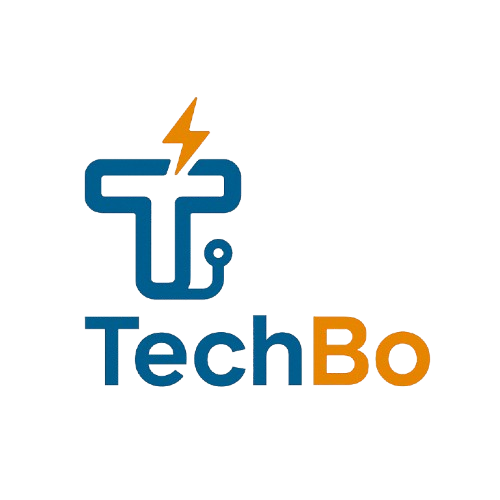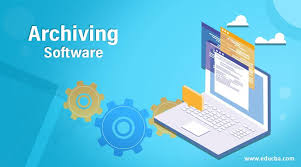In today’s fast-paced digital world, the volume of data generated by individuals and organizations is growing exponentially. From personal photos and documents to corporate records and large-scale databases, the need to store, manage, and retrieve information efficiently has never been more critical. This is where archiving software comes into play. Archiving software is a specialized tool designed to help users systematically store, organize, and retrieve data over long periods. In this article, we will explore the importance of archiving software, its key features, and how it benefits both individuals and organizations.

What is Archiving Software?
Archiving software is a type of application that enables users to store and manage data in a structured and secure manner. Unlike regular storage solutions, such as cloud drives or external hard drives, archiving software is specifically designed for long-term data preservation. It ensures that data remains accessible, searchable, and intact for years or even decades. This is particularly important for organizations that need to comply with legal or regulatory requirements, as well as individuals who want to preserve personal memories or important documents.
Key Features of Archiving Software
- Data Compression and Deduplication
One of the primary features of archiving software is its ability to compress data, reducing the amount of storage space required. Additionally, deduplication eliminates redundant copies of files, further optimizing storage efficiency. This is especially useful for organizations dealing with large volumes of data. - Advanced Search and Retrieval
Archiving software often includes powerful search tools that allow users to quickly locate specific files or documents. These tools may support keyword searches, metadata filtering, and even full-text searches, making it easy to find information even in vast archives. - Data Encryption and Security
Security is a top priority for archiving software. Most solutions offer encryption features to protect sensitive data from unauthorized access. This ensures that archived information remains confidential and secure, even if the storage medium is compromised. - Version Control
For organizations that frequently update documents or files, version control is a critical feature. Archiving software can track changes and maintain multiple versions of a file, allowing users to revert to previous versions if needed. - Compliance and Audit Trails
Many industries are subject to strict regulations regarding data retention and management. Archiving software often includes features that help organizations comply with these regulations, such as audit trails that track who accessed or modified a file and when. - Scalability
As data volumes grow, archiving software must be able to scale accordingly. Modern solutions are designed to handle large amounts of data and can be easily expanded to accommodate future needs. - Cross-Platform Compatibility
With the variety of devices and operating systems in use today, cross-platform compatibility is essential. Archiving software should be able to integrate seamlessly with different systems, ensuring that data can be accessed and managed from anywhere.
Benefits of Archiving Software
- Improved Data Management
Software provides a centralized platform for storing and organizing data. This eliminates the need for multiple storage solutions and reduces the risk of data loss or duplication. By keeping data in a single, well-organized archive, users can save time and effort when searching for specific information. - Cost Savings
By compressing data and eliminating duplicates, archiving software reduces the amount of storage space required. This can lead to significant cost savings, particularly for organizations that rely on expensive cloud storage or physical servers. - Enhanced Security
With built-in encryption and access controls, archiving software ensures that sensitive data remains protected. This is especially important for organizations that handle confidential information, such as financial records or personal data. - Regulatory Compliance
Many industries are required to retain data for specific periods to comply with legal or regulatory requirements. software simplifies this process by automating data retention and providing audit trails that demonstrate compliance. - Preservation of Important Data
For individuals, archiving software offers a way to preserve personal memories, such as photos and videos, as well as important documents like tax records or legal papers. By storing this information in a secure archive, users can ensure that it remains accessible for years to come. - Disaster Recovery
In the event of a hardware failure, cyberattack, or natural disaster, archiving software can serve as a critical component of a disaster recovery plan. By maintaining a secure, off-site archive, organizations can quickly restore lost data and minimize downtime.
Choosing the Right Archiving Software
With so many archiving solutions available, selecting the right one can be challenging. Here are some factors to consider when choosing software:
- Ease of Use: The software should have an intuitive interface that makes it easy to store, search, and retrieve data.
- Scalability: Ensure that the solution can grow with your needs, whether you’re an individual or a large organization.
- Security Features: Look for robust encryption and access control features to protect your data.
- Compliance Support: If you operate in a regulated industry, choose software that includes compliance and audit trail features.
- Cost: Consider both the upfront cost and ongoing expenses, such as subscription fees or storage costs.
Conclusion
In an era defined by data, archiving software has become an indispensable tool for individuals and organizations alike. By providing a secure, efficient, and scalable solution for long-term data storage, archiving software helps users manage their information effectively while ensuring compliance and reducing costs. Whether you’re looking to preserve personal memories or maintain critical business records, investing in the right archiving software is a decision that will pay dividends for years to come. As technology continues to evolve, the role of software will only become more important, making it a cornerstone of modern data management strategies.

